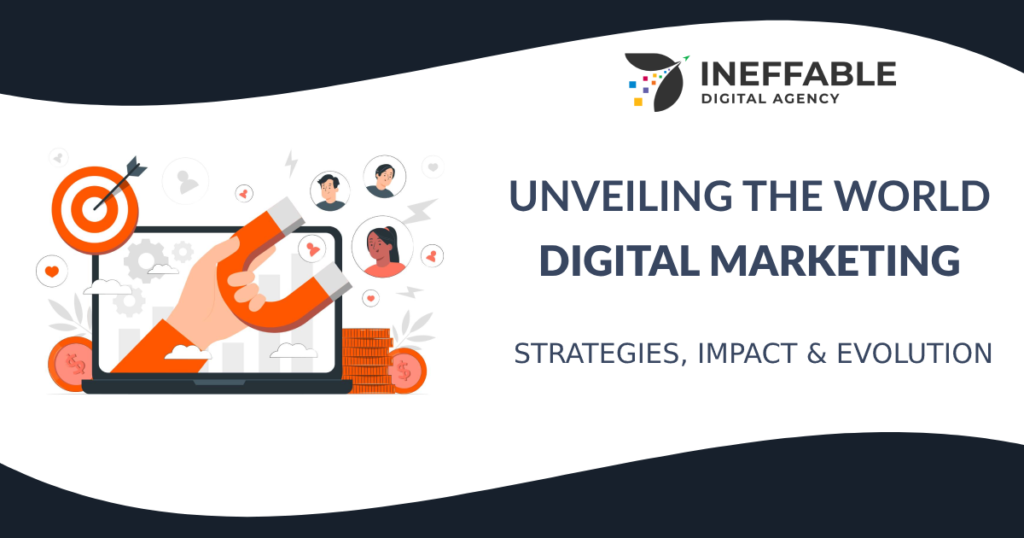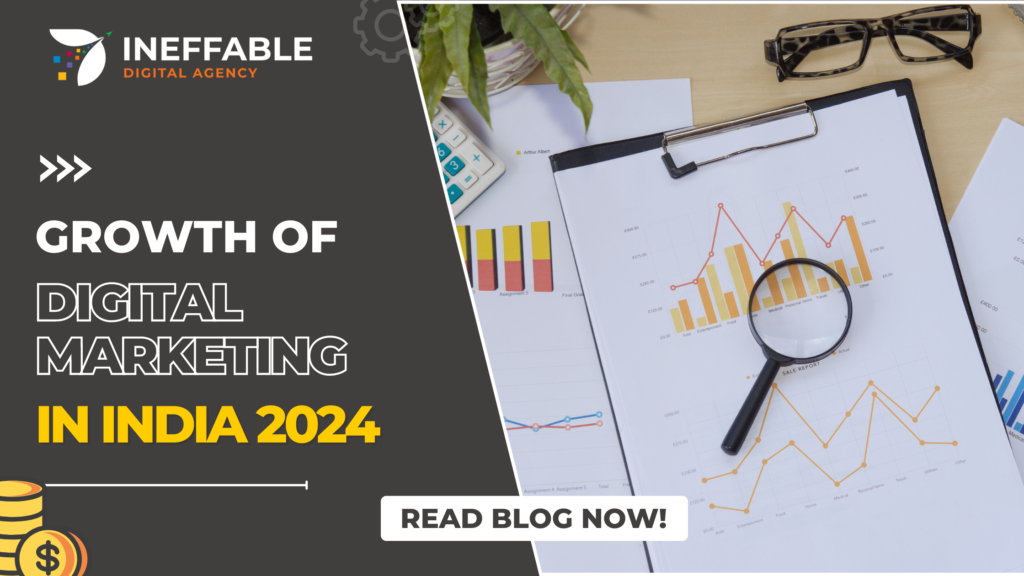Unveiling the World of Digital Marketing: Strategies, Impact, and Evolution
In the changing world of the modern business landscape, a powerful force is at play, shaping consumer interactions, brand identities, and market dynamics – it’s called digital marketing. In this era of digital dominance, understanding what digital marketing is and how it functions has become key for businesses aiming to thrive in the online realm.
Defining Digital Marketing
Digital marketing is a broad field that includes an array of tactics and strategies aimed at reaching target audiences, engaging them, and converting leads into customers to improve the ROI of any business. Unlike traditional marketing, which relies heavily on offline channels like print ads or TV commercials, digital marketing leverages digital platforms such as websites, social media, search engines, email, and mobile apps.
The Components of Digital Marketing
- Search Engine Optimization (SEO): SEO involves optimizing your online content to rank higher in search engine results pages (SERPs). This process includes keyword research, on-page optimization, backlink building, improving user experience to boost organic traffic and many more.
- Content Marketing: Content is king in the digital world. Content marketing focuses on creating and sharing valuable, relevant, and consistent content to attract a clearly defined audience. This content can take various forms, including blog posts, videos, infographics, ebooks, and more.
- Social Media Marketing: Social media platforms like Facebook, Instagram, YouTube, Twitter, and LinkedIn offer vast opportunities for businesses to connect with their target audience, build brand awareness, and drive engagement through organic posts, paid ads, influencer collaborations, and community management.
- Email Marketing: Despite being one of the oldest digital marketing strategies, email marketing remains effective. It involves sending targeted messages to leads and customers to nurture relationships, promote products or services, share valuable content, and drive conversions.
- Pay-Per-Click Advertising (PPC): PPC advertising allows businesses to bid for ad placement in search engines and on social media platforms. Advertisers pay a fee each time their ad is clicked, making it a cost-effective way to drive traffic, generate leads, and increase sales. Affiliate Marketing: This strategy involves partnering with affiliates who promote your products or services in exchange for a commission for each sale or lead they generate. It’s a performance-based marketing model that can significantly expand your reach.
- Influencer Marketing: Leveraging influencers – individuals with a large and engaged following on social media – can help businesses reach their target audience authentically. Influencers endorse products or services, creating trust and credibility among their followers.
The Impact of Digital Marketing
The development of digital marketing has revolutionized the way businesses connect with consumers and conduct their operations. Here are some key impacts:
- AI and Machine Learning: Artificial intelligence (AI) and machine learning algorithms are revolutionizing digital marketing by enabling personalized experiences, predictive analytics, chatbots for customer service, and automated campaign optimization.
- Voice Search Optimization: With the rise of voice-activated devices like smart speakers and virtual assistants, optimizing content for voice search has become essential for businesses to enhance their visibility in search results.
- Video Marketing Dominance: Video content is king in the digital age, with platforms like YouTube, and Instagram Reels driving engagement and conversions. Businesses are leveraging video marketing strategies to tell compelling stories and showcase their products or services.
- Ephemeral Content: Platforms like Snapchat and Instagram Stories have popularized ephemeral content that disappears after a set period. Businesses are leveraging this trend for real-time marketing, promotions, and behind-the-scenes glimpses to engage audiences.
Conclusion
In conclusion, digital marketing is a multifaceted discipline that encompasses various strategies, channels, and technologies to achieve marketing objectives in the digital space.
From SEO and content marketing to social media advertising and influencer partnerships, businesses have a plethora of tools at their disposal to connect with consumers, drive engagement, and drive business growth. As digital marketing continues to evolve, staying abreast of emerging trends and adopting innovative strategies will be key to staying competitive in the ever-changing digital landscape.



